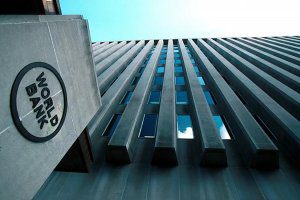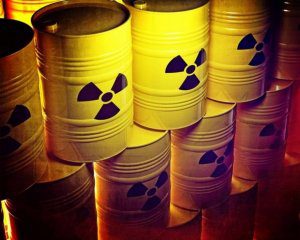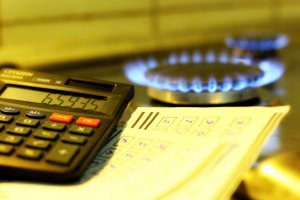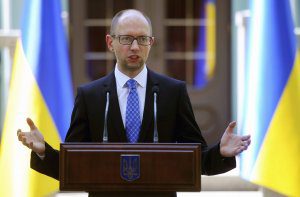KYIV. Aug 12 (Interfax-Ukraine) – Fitch Ratings has upgraded the State Export-Import Bank of Ukraine (Ukreximbank, Kyiv) Long-term foreign currency Issuer Default Rating (IDR) to ‘CCC’ from ‘RD’ (restricted default) and senior unsecured debt rating to ‘CCC’ from ‘C’.
The upgrades follow the completion of the bank’s external debt restructuring, the rating agency said in a posting on its website.
Fitch downgraded the bank’s Viability Rating (VR) to ‘f’ from ‘ccc’ and immediately upgraded the VR back to ‘ccc’. The downgrade to ‘f’ reflects the agency’s view that the bank failed when defaulting on (restructuring) its external debt. This view is based on Fitch’s understanding that the bank probably had insufficient foreign currency liquidity to continue to service its external debt – in particular to repay its $750 million eurobond due on April 27, 2015, – and so would likely have defaulted because of weaknesses in its standalone credit profile, even if a debt restructuring had not been imposed by the Ukrainian authorities.
According to the posting, the bank has not made full information available to Fitch with respect to its foreign currency liquidity position at the time of its default. However, on the basis of available data the agency believes it is appropriate to denote the bank as having failed.
The upgrade of the VR to ‘ccc’, and Long-term foreign currency IDR and senior debt rating to ‘CCC’ reflects Fitch’s assessment of the bank’s standalone profile following its external debt restructuring. Specifically, the upgrade reflects reduced refinancing risks, as the restructuring of the bank’s eurobonds resulted in a significant lengthening of the external debt maturity profile. At the end of the first half of 2015, the bank’s foreign currency liquidity (comprising cash and equivalents and short-term interbank placements) was comfortably sufficient to meet near-term wholesale funding maturities, although stability of the bank’s highly dollarised deposit funding is also key to maintaining FX liquidity.
The bank’s VR and IDRs are also supported by (i) its reasonable liquidity in local currency, underpinned by large holdings of unpledged government securities eligible for refinancing with the NBU (32% of end-1Q15 assets); (ii) generally sticky customer funding, in part due to the presence of public sector corporates (24% of liabilities) in the deposit base; (iii) reasonable 93% reserve coverage of non-performing loans (NPLs; loans more than 90 days overdue; end-1H15: 35% of loans); and (iv) the bank’s compliance with the prudential capital requirements (end-1H15: regulatory capital ratio of 12.1% vs. minimum level of 10%).
Fitch says that however, the ratings remain constrained by the highly stressed operating environment, and resultant pressure on asset quality, performance and capital. Downside risks to asset quality remain high given large borrower concentrations, the material share of FX-lending (74% of net loans) and sizable restructured/rolled-over exposures (44% of the total), which are only modestly provisioned. Recovery prospects will depend on the performance of the domestic economy and improvements in external markets, as many of these borrowers are exporters. The bank’s asset quality remains highly correlated with the sovereign’s credit profile due to the bank’s large exposure to sovereign debt (end-1Q15: 10x Fitch Core Capital, FCC; this is all domestic debt, both FX and UAH-denominated, and so not part of the expected restructuring) and public sector more generally (4x FCC).
Loss absorption capacity is limited. At end-1H15, the bank could have increased its impairment reserves by 2% only without breaching regulatory capital requirements. The bank’s (core) Tier 1 ratio was a weak 6.8% at end-1H15, with overall regulatory solvency relying significantly on subordinated debt. Pre-impairment profit was negative in 2014-1Q15, meaning that Ukreximbank is likely to need further capital support if performance does not improve and asset quality remains under pressure.
Fitch says that the bank’s Support Rating ‘5’ and Support Rating Floor of ‘No Floor’ reflect Fitch’s view of the Ukrainian authorities’ still limited ability to provide support to the bank, in particular in foreign currency, in case of need, as indicated by the sovereign’s ‘CC’ Long-term foreign-currency IDR. However, the propensity to provide support to the bank remains high, in Fitch’s view, in particular in local currency, given the bank’s 100%-state ownership, policy role, high systemic importance, and the track record of capital support for the bank under different governments.
Ukreximbank’s subordinated debt rating has been affirmed at ‘C’, the lowest possible issue rating. The two-notch differential between the bank’s VR of ‘ccc’ and the subordinated debt rating of ‘C’ reflects one notch for incremental non-performance risk (resulting from the flexibility to defer coupons in certain circumstances, for example if the bank reports negative net income for a quarter) and one notch for potentially weaker recoveries due to the instrument’s subordination.
Fitch says that the bank’s VR, IDRs and senior debt ratings would not automatically be downgraded in case of a further sovereign downgrade/debt restructuring, as the bank’s low ratings already reflect very high levels of credit risk. However, the bank’s IDRs and debt ratings could be downgraded in case of transfer and convertibility restrictions being imposed, which would restrict its ability to service its obligations. The VR, IDRs and debt ratings could also be downgraded if the sovereign defaults on its domestic FX debt, as this may result in the acceleration of the bank’s external debt, which in Fitch’s view it would be unlikely to be able to redeem.
Fitch forecasts that the bank’s ratings are also likely to be downgraded if further deterioration in asset quality results in capital erosion, without sufficient support being provided by the authorities, or if deposit outflows sharply erode the bank’s liquidity, in particular in foreign currency. Stabilization of the sovereign’s credit profile and the country’s economic prospects would reduce downward pressure on the ratings.
The Support Rating could be upgraded and the Support Rating Floor revised upwards if Fitch markedly revises its view of the authorities’ ability to provide timely support to the bank, in particular, in foreign currency. However, this is unlikely in the near term, given the country’s weak external finances and expected sovereign external debt restructuring.
Fitch’s rating actions on Ukreximbank are as follows:
– Long-term foreign currency IDR: upgraded to ‘CCC’ from ‘RD’;
– Senior unsecured debt of Biz Finance PLC: upgraded to ‘CCC’/Recovery Rating ‘RR4’ from ‘C’/’RR4’;
– Subordinated debt: affirmed at ‘C’/’RR5’;
– Short-term foreign currency IDR: upgraded to ‘C’ from ‘RD’;
– Long-term local currency IDR: affirmed at ‘CCC’;
– Support Rating: affirmed at ‘5’;
– Support Rating Floor: affirmed at ‘No Floor’;
– Viability Rating: downgraded to ‘f’ from ‘ccc’; upgraded to ‘ccc’;
– National Long-term rating: affirmed at ‘AA-(ukr)’; Outlook Stable.

KYIV. Aug 11 (Interfax-Ukraine) – The World Bank may allocate $500 million to Ukraine for purchase and pumping gas into underground storage facilities, Ukrainian Energy and Coal Industry Minister Volodymyr Demchyshyn said at a briefing in Kyiv on Monday.
“Active negotiations are being held with the World Bank, which is talking about $500 million, and IFC, that is ready to talk about $200-250 million to buy gas by a foreign trader,” he said.
Demchyshyn also reminded that there already were some agreements with European Bank for Reconstruction and Development, according to which the financial institution might allocate $300 million for the same goals.

KYIV. Aug 11 (Interfax) – Ukraine is expecting a significant rise in the Westinghouse nuclear fuel supply in 2016, Energy and Coal Industry Minister Volodymyr Demchyshyn said at a press conference in Kyiv on Monday.
“Hopefully, we will have five out of 18 supplies from Westinghouse starting from 2016. Currently 12 out of 13 supplies come from Russia,” he said.
Ukraine procured $54.715 million worth of fresh nuclear fuel in January-March 2015.
Only Russian fuel was bought for Ukrainian nuclear power plants in the first quarter of this year, and the delivery was made in March.
In 2014, Ukraine purchased $628.176 million worth of fresh nuclear fuel, including $588.831 million worth from Russia and $39.345 million worth from Sweden.

KYIV. Aug 11 (Interfax-Ukraine) – As traditional cooperation with Russia in the space industry is broken, the import substitution of Russian parts in Ukraine’s aerospace co-operation is considered as one of serious long-term tasks, and the plans for its accomplishment should be stipulated in a state-funded program for the development of the domestic defense industry complex until 2020, chief of the Ukrainian State Space Agency Oleh Urusky said.
“The import substitution is a very serious task. Naturally, this is not a matter of one day: I can say that Russia’s imports had fallen a lot in the past year,” he told Interfax-Ukraine, noting that Ukraine was co-operating with Russia only under the international programs of “peaceful space”.
The tasks concerning the industry-related import substitution are being resolved at the state level, Urusky said.
“This work was started in the previous year by Ukroboronprom, when I worked as deputy director for the state-run concern. We continued it at the Ukrainian State Space Agency. It is planned that this issue will be put as a separate section in the state program for the development of the defense and industrial complex until 2020, the development of which, as far as I am concerned, is at the final stage today and will be submitted for consideration to the government soon,” he said.
Meanwhile, Urusky said: “The process of import substitution is two-way: Russia is also following the diversification of the production and the lowering of dependence from our suppliers.”

KYIV. Aug 11 (Interfax-Ukraine) – Ukraine in January-July 2015 reduced gas consumption by 20%, in particular industry by 26%, the population by 20%, heating enterprises by 12%, Minister of Energy and Coal Industry Volodymyr Demchyshyn has stated.
“This is the thesis for those who say the reserves are not sufficient,” he said at a briefing in Kyiv.
Given the fact that consumption in January-July 2014 amounted to 26.022 billion cubic meters, consumption in the first seven months of this year amounted to 20.818 billion cubic meters.
The minister said that at present gas reserves are 13.4 billion cubic meters.
“The question is not in stocks but in gas pumping,” Demchyshyn said, emphasizing that confidence in ensuring gas procurement is high enough.
“Stocks should be increased, but there is no critical level… The situation is clear and balanced,” the minister said.

KYIV. Aug 11 (Interfax-Ukraine) – Ukrainian Prime Minister Arseniy Yatseniuk has promised to organize an inspection of the work of the current members of the government in September, based on the results of which he will suggest that the parliamentary collation replace ministers who fail to perform their duties.
“In September it will be clear what’s been done and what hasn’t. Based on the results of the assessment of actions of every minister, I will suggest new members of the Cabinet of Ministers and new, efficient structure of the Ukrainian government, as well as regional state administrations to the parliamentary coalition,” Yatseniuk said on the air of “Ten Minutes with Premier” program on Espreso TV on Sunday night.
“[The important thing] has to be not the quantity but the quality, not the imitation but the responsibility,” the PM said.
Yatseniuk noted that he had already “heard out the reports of all ministries.” Tasks have been already given to every minster in the respective area, and in September it will be clear what’s been done, and what hasn’t, he added.
According to Yatseniuk, the only indication of changes in the country “isn’t the process, but the results.”